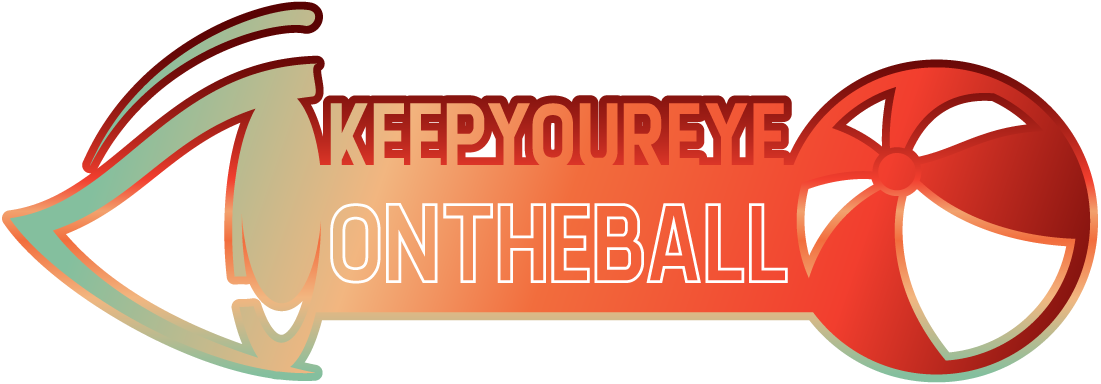As high-performance athletes strive to optimize their results, they often overlook one crucial aspect of their training regimen: nutrition. Proper nutrition plays a vital role in fueling the body for peak performance, aiding in recovery, and enhancing overall well-being. By understanding the intricacies of high-performance nutrition, athletes can unlock their full potential and gain a competitive edge. In this comprehensive guide, we’ll delve into the essential components of a high-performance diet, exploring the optimal balance of macronutrients, the significance of hydration and electrolytes, and the importance of antioxidant-rich foods. Whether you’re a seasoned pro or just starting out, this article will provide valuable insights and practical advice on how to fuel your body for success.
Nutrition Needs for High Performance Athletes
As a high-performance athlete, I understand the importance of fueling my body with the right nutrients to optimize my performance and achieve my goals. A well-planned diet can make all the difference between success and failure, and it’s essential to get it right. Here are the key nutrition needs for high-performance athletes:
Macronutrient Balance
Aim to consume a balanced mix of macronutrients, including carbohydrates, protein, and fat. The ideal ratio varies depending on individual needs, but a general guideline is:
- Carbohydrates: 55-65% of total daily calories
- Protein: 15-20% of total daily calories
- Fat: 20-30% of total daily calories
Hydration
Proper hydration is crucial for optimal performance. Aim to drink at least 8-10 glasses of water per day, and adjust according to individual needs based on climate, intensity, and duration of exercise.
Electrolytes
Electrolytes play a vital role in maintaining fluid balance and nerve function. Include electrolyte-rich foods in your diet, such as bananas (potassium), avocados (potassium), nuts (magnesium), and seeds (magnesium).
Pre-Workout Nutrition
For optimal performance, aim to eat a meal or snack containing complex carbohydrates and protein 1-3 hours before exercise. Examples include oatmeal with banana and almond butter, or Greek yogurt with berries and honey.
Post-Workout Nutrition
Within 30-60 minutes after exercise, consume a meal or snack rich in carbohydrates and protein to aid in recovery. Examples include chocolate milk, smoothies, or a sandwich with lean meat and whole grain bread.
Meal Frequency and Timing
Eat 3-5 main meals and 2-3 snacks per day, spaced evenly apart to maintain stable energy levels. Adjust meal frequency and timing based on individual needs and schedule.
Supplements
Consider consulting with a healthcare professional or registered dietitian to determine if supplements are necessary for your specific needs. Some common supplements for athletes include protein powder, creatine, and branched-chain amino acids (BCAAs).
Individualized Nutrition Planning
Every athlete is unique, and nutritional needs vary depending on factors such as age, sex, weight, height, and activity level. Work with a qualified healthcare professional or registered dietitian to develop a personalized nutrition plan tailored to your specific needs and goals.
Key Nutrients for High-Level Performance
Eating for optimal athletic performance requires a balanced diet rich in essential nutrients.
-
Carbohydrates
As the primary source of energy during intense activities, carbohydrates play a crucial role in fueling the body.
- Fruits, vegetables, whole grain cereals, breads, and pastas are excellent sources of complex carbohydrates.
- Avoid sugary drinks and refined carbohydrates that can cause energy crashes and decreased performance.
-
Dietary Fat
Dietary fat supports healthy hormone production and helps meet energy needs.
- Nutrient-dense fats found in nuts, seeds, avocados, and olive oil are ideal choices.
- Avoid saturated and trans fats found in processed foods and fried foods.
-
Protein
Protein is essential for muscle repair and growth, particularly after intense exercise.
- Lean protein sources like chicken, fish, beans, and lentils are excellent options.
- Avoid excessive protein intake, which can lead to dehydration and decreased performance.
-
Vitamins and Minerals
Vitamins and minerals, such as iron, magnesium, and potassium, are vital for maintaining optimal physical function.
- Incorporate vitamin-rich foods like leafy greens, citrus fruits, and fortified dairy products into your diet.
- Magnesium-rich foods like dark chocolate, almonds, and spinach support muscle function and recovery.
By focusing on these essential nutrients, athletes can optimize their performance, enhance recovery, and achieve their goals.
What Do I Eat to Have the Best Performance?
As an athlete, fueling my body with the right foods is crucial for optimal performance.
- I focus on consuming complex carbohydrates such as whole grains, fruits, and vegetables, which provide sustained energy and support muscle function.
- Lean protein sources like chicken, fish, and legumes are also essential for muscle repair and growth.
Nutrition Strategies for Peak Performance
- Hydration: Adequate water intake is vital for physical performance and overall health. Aim to drink at least eight glasses of water per day.
- Macronutrient Balance: A balanced diet consisting of carbohydrates, protein, and healthy fats supports energy production, muscle recovery, and overall well-being.
- Electrolyte Management: Proper electrolyte balance is critical for maintaining fluid balance and preventing dehydration during intense exercise.
Fueling My Body for Optimal Performance
By incorporating these nutrition strategies into my daily routine, I’m able to perform at my best and achieve my fitness goals.
- I prioritize eating nutrient-dense foods, including lean proteins, whole grains, and a variety of colorful fruits and vegetables.
- I stay hydrated by drinking plenty of water throughout the day and limiting my intake of sugary drinks.
- I monitor my macronutrient intake to ensure I’m meeting my energy needs and supporting muscle recovery.
Additional Tips for Optimizing Nutrition
- Listen to Your Body: Pay attention to how your body responds to different foods and adjust your diet accordingly.
- Experiment with New Foods: Try new recipes and ingredients to keep your diet interesting and prevent boredom.
- Seek Professional Guidance: Consult with a registered dietitian or healthcare professional to develop a personalized nutrition plan tailored to your specific needs and goals.
Elite Performance Diet
As an athlete, fueling your body with the right foods can make all the difference in achieving peak performance.
- A well-planned diet provides the necessary nutrients, vitamins, and minerals to support muscle function, recovery, and overall health.
- The ideal macronutrient breakdown for athletes varies depending on factors such as sport, intensity, and individual needs.
- Carbohydrates should account for approximately 55-65% of daily calories, with a focus on complex sources like whole grains, fruits, and vegetables.
- Protein intake should be around 15-20% of daily calories, with a balance of lean animal protein sources, legumes, and plant-based options.
- Fat intake should comprise 20-25% of daily calories, with an emphasis on healthy fats like nuts, seeds, avocados, and olive oil.
Nutrition Recommendations for Elite Athletes
- Consume 1.2-1.6 grams of protein per kilogram of body weight daily to support muscle repair and growth.
- Aim for 2-3 grams of carbohydrates per kilogram of body weight daily to optimize energy stores and performance.
- Incorporate anti-inflammatory foods like omega-3 rich fatty fish, turmeric, and ginger to reduce muscle soreness and inflammation.
- Stay hydrated by drinking plenty of water throughout the day, aiming for at least 8-10 glasses daily.
- Consider working with a registered dietitian or sports nutritionist to develop a personalized meal plan tailored to your specific needs and goals.
Sample Meal Plan for Elite Athletes
| Breakfast | Lunch | Dinner |
|---|---|---|
| Banana with almond butter and whole-grain toast | Grilled chicken breast with quinoa and steamed vegetables | Salmon with sweet potato and green beans |
Remember, everyone’s nutritional needs are unique, and it may take some trial and error to find the perfect balance of macronutrients and foods that work best for you.
The 100 Rule Diet
The 100 diet is a restrictive eating plan that focuses on limiting daily sugar intake to just 100 calories.
- This approach was popularized by Jorge Cruise in his book “The 100: Count Only Sugar Calories and Lose Up to 18 Lbs in Two Weeks.”
- The diet restricts the consumption of sugar calories to 100 per day for quick weight loss.
- By focusing solely on sugar calories, dieters aim to lose weight rapidly, with some reports suggesting up to 18 pounds in two weeks.
How Does the 100 Diet Work?
The 100 diet works by eliminating all sources of added sugars from the diet, including those found in foods like bread, pasta sauce, and salad dressings.
- Dieters track their daily sugar intake using a food diary or mobile app.
- They eliminate all high-sugar foods and beverages, replacing them with low-calorie alternatives.
- By drastically reducing sugar intake, dieters aim to enter a state of ketosis, where the body burns fat for energy instead of carbohydrates.
Benefits and Drawbacks of the 100 Diet
While the 100 diet may promote rapid weight loss, it has several drawbacks, including:
- Nutrient deficiencies due to restrictive eating.
- Hunger and cravings for high-sugar foods.
- Lack of long-term sustainability due to its restrictive nature.
Alternatives to the 100 Diet
If you’re looking for a more sustainable approach to weight loss, consider these alternatives:
- A balanced diet that emphasizes whole, nutrient-dense foods.
- Mindful eating habits that promote healthy relationships with food.
Conclusion
While the 100 diet may offer rapid weight loss, its restrictive nature and potential nutrient deficiencies make it a less-than-ideal choice for long-term health and wellness.
What Shouldn’t You Eat Before Bed?
Suggested foods to avoid near bedtime include:
- Caffeinated beverages
- Fatty or greasy foods
- Spicy dishes
- Heavy meals
- Processed snacks
- Sugary treats
- Carbonated drinks
- High-sodium foods
Avoid consuming these types of food at least two to three hours before bedtime to promote better digestion and prevent discomfort during sleep.
Additionally, consider the following tips:
- Eat a balanced dinner consisting of protein, complex carbohydrates, and healthy fats
- Avoid eating too close to bedtime, allowing for adequate time to digest
- Choose relaxing teas, such as chamomile or peppermint, to promote calmness before sleep
- Limit liquid intake before bed to minimize nighttime awakenings for bathroom trips
By making informed choices about what to eat before bed, you can improve the quality of your sleep and wake up feeling refreshed and revitalized.
Conclusion
Avoiding certain foods and drinks before bedtime can significantly impact the quality of your sleep. By choosing wisely and establishing a consistent sleep routine, you can optimize your body’s ability to rest and recover, leading to improved overall health and well-being.





0 Comments